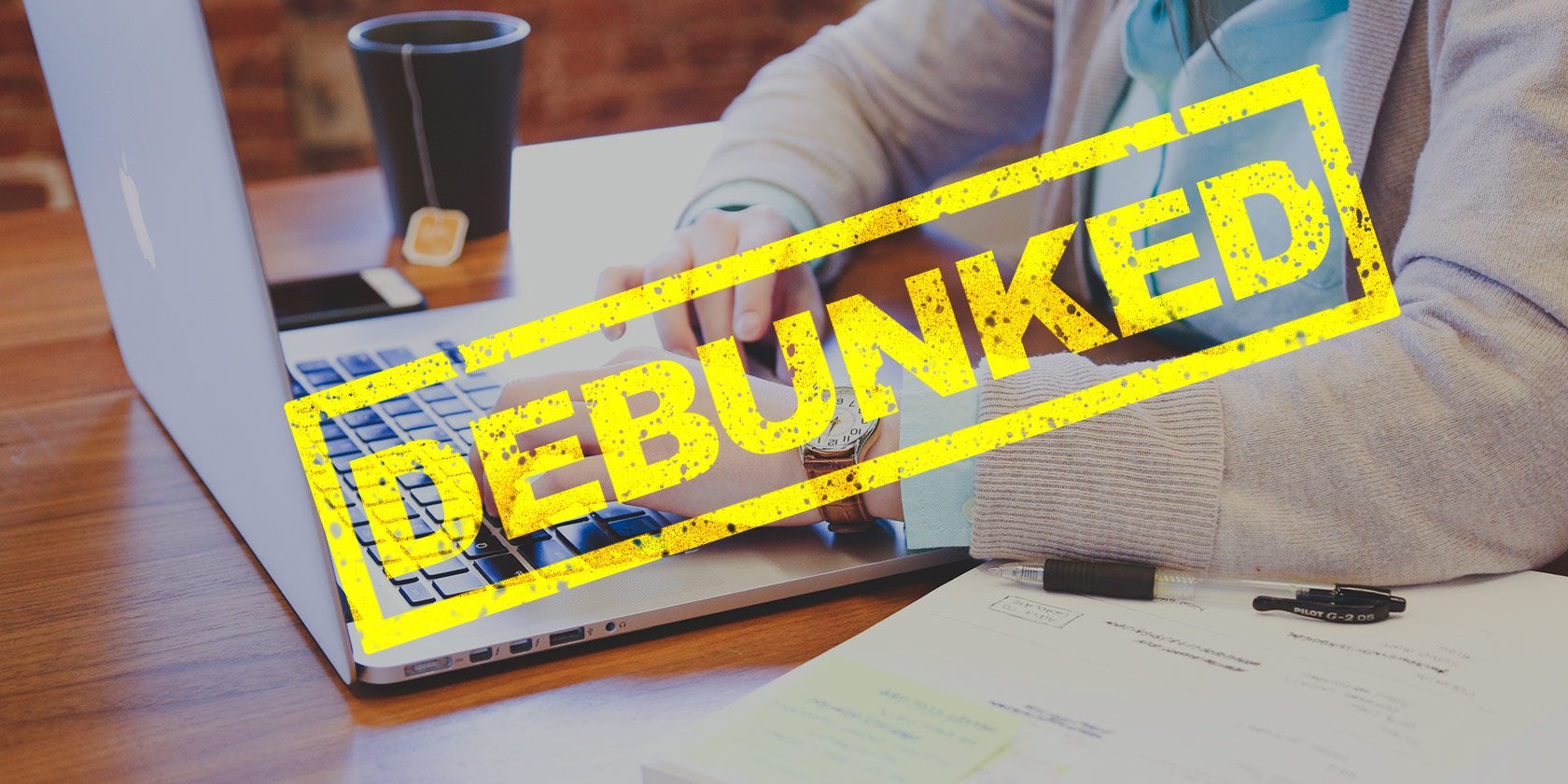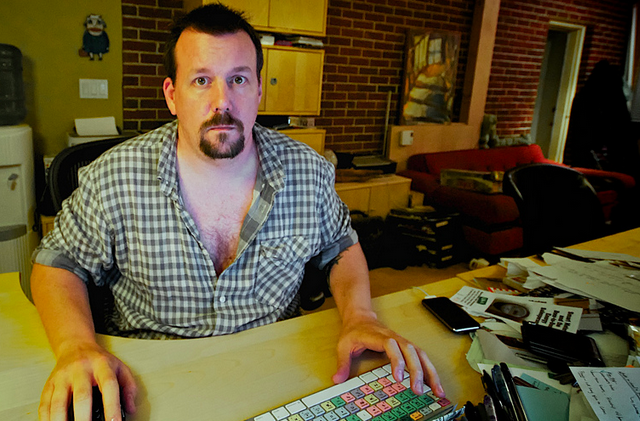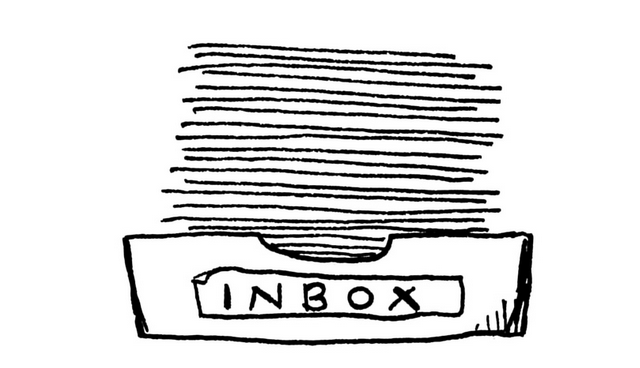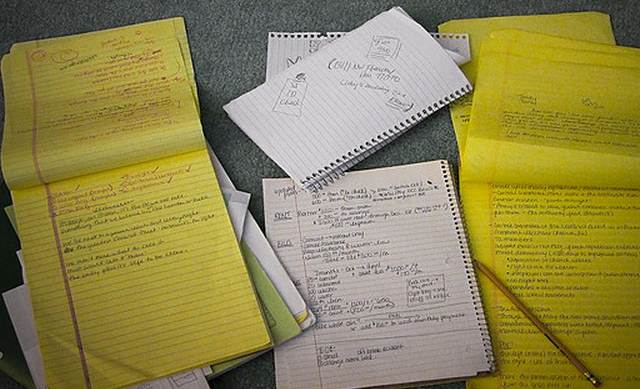The number of people making a handsome living from prescribing entry-level productivity techniques, strategies, tools and (in some cases) spiritual woo woo, is mind-boggling. Unfortunately, some of the productivity ideas sold by many of these "gurus" are sometimes unfounded, and often mistaken.
As a bit of fun then, we decided to debunk a few of these productivity myths by showing that the entire opposite of some of these rules may just as likely be true, or that on their own, they're downright incomplete.
Granted, these tactics may have worked for the productivity gurus. They may even have worked for a few of their productivity-obsessed readers. But to sell them as a solve-all, applicable to everyone, or as a proven fact, is a misnomer.
Myth #1: Work on Your Most Important Task First
It's 9am. You slump into your desk chair and read over that list of five things you must do by the end of the day. You see the biggie. The one task those productivity gurus tell you to dive into first, with gusto. "Finish Investment Presentation". It's one hell of a big task that's likely to take most of the day, and the caffeine from that double espresso hasn't even hit yet.
In times like these productivity advice like that is akin to a punch in the face. What you need friend, is the psychological boost of a few small wins before tackling that behemoth of a task.
So let that big task percolate. Instead, get down to Inbox-Zero guilt free. Print off that report. Hell, download those royalty free images that you need for the site redesign. The world is your oyster.
Harvard Business Review contributor Teresa Amabile explains:
"Whether [employees] are trying to solve a major scientific mystery or simply produce a high-quality product or service, everyday progress—even a small win—can make all the difference in how they feel and perform."
In his book The Power of Habit Charles Duhigg talks about these small wins being able to set off a positive chain reaction, fueled by dopamine, which is a key chemical in ensuring your feel motivated. If needed, you can even develop micro-habits. These can ensure you feel like you've achieved something (no matter how small) within the first hour of your day.
Coach.me is a great place to start with the help of a community. It is a meeting place for people trying to improve their habits, and professional life coaches who can help them do it. At its simplest, it is a habit tracking tool.
There you have it. Once you arrive at work, get a few small wins under your belt before taking on that all-important task. Your pride, self-esteem, motivation and performance will receive that much needed boost, ensuring your Most Important Task is up to par.
Myth #2: Work Through Your Inbox as Fast as Possible
There are entire schools of thought on inbox management, with one of the most popular being Inbox Zero. The aim here is to rapidly sort your emails. To reply now to anything that'll take less than a minute, and to sort the rest into folders for batch processing later. You can even turn emptying your inbox into a game. Earn some points and clear that email backlog as quickly as possible (if that tickles your fancy, check out emailga.me [Broken URL Removed]).
The problem -- hurrying through your inbox you often end up spending more time on email.
In a recent article, Cal Newport calls this "Interaction Inefficiency". Instead of better explaining yourself, you aim for brevity. You may limit your replies to no more than 5 sentences, causing you to exclude useful information. In other words, this back and forth messaging is inefficient. Newport expands:
"When most people (myself included) check e-mail, we're often optimizing the wrong metric: the speed with which you clear messages.
Boosting this metric feels good in the moment — as if you’re really accomplishing something — but the side effect is ambiguous and a minimally useful message that cause the threads to persist much longer than necessary."
As a solution, we should be replying to emails with the intention to reach the goal of that thread as efficiently as possible. This is different to plowing through them at breakneck speed.
If you're organizing a conference call across time-zones, spend an extra few minutes inviting people to choose a convenient time on Doodle (read our review). This will be better than 15 back and forth messages between 10 people.
So consider ignoring advice to treat your inbox as a quick-fire round on a game show. Instead, reply to messages in a way that will answer future questions or problems now so you're not bombarded with them later. This reduces the number of emails landing in your inbox. It even clears your mind, as you know you've dealt with each conversation.
Myth #3: Write a Master To-Do List
I once did this. I sat down and emptied my mind upon a wad of mulched paper that the printer decided it didn't fancy. I'd read about mind-dumping my life's outstanding tasks onto a list to give my mind "space to breathe". This included things I need to do, want to do, and repeat tasks that'll keep coming around.
Twenty minutes later, things went awry. I lunged for the nearest paper bag to pant into as panic took over my body. The sight of 342 things on your master to-do list does things like that to you.
"Grab a pen and paper and write down everything you need to do"
This advice makes me convulse. It's over-simplified and, if followed as prescribed, will do nothing but ramp up your blood pressure. You don't need a list that tells you how backlogged you are with your tasks. You need a list that tells you exactly what to do next.
That's why advice such as "write a master to do list" must include caveats and further information about what to do with that list.
How do you sort it, group tasks, and collect future tasks?
The best system to date for this has to be David Allen's Getting Things Done. This is a system that offers a complete strategy, ensuring your mind dump leads to what he calls a "mind like water". I use a system like Allen's, alongside the amazing list management app Any.do.
In short, make sure you know what to do with that lengthy list before dumping your mind, else you may end up lunging for the paper bag, too.
Myth #4: Power Through The Funk
Winston Churchill coined the phrase "If you're going through hell, keep going". Alas, advice has never been so bad (of course, he meant it in a different context). Often when you hit a slump in your work that lasts longer than usual, what you're facing could well be the onset of burnout. In which case, continuing on the same path may be the worst thing you could do.
If you're always exhausted, can't switch off, making unhealthy lifestyle choices, and finding it hard to enjoy life, you may be getting burned out. Whether you're a programmer with burnout or a writer with burnout, powering through will only lead to worsened symptoms, and longer recovery times.
According to Lifehacker's Jeremy Hutchings; if you're in a dead-end job,
"Where you are sacrificing yourself and things in your life for the sake of an organisation that obviously doesn't care about you...return the favour and just stop and take care of yourself and ignore them".
If things end up getting too bad "leave immediately, seriously get out."
This is because the best way to tackle burnout is to recognize the stressors that are causing the problem. You then must work on eliminating (or at least minimizing) these. Of course, healthy eating, getting good sleep, and exercising, all contribute to recovering from burnout.
But in the long run, it's only by reducing those stressors and distancing yourself from that stressful situation, that you will dig yourself out of the funk. Powering through the funk could well exacerbate the problem.
Productivity Advice You Can Trust
This article is not an attempt to correct the productivity gurus out there. After all, I'm not a productivity pro by any measure. It's to show that advice being sold as "applicable to everyone" may not be the right advice for you.
The above productivity myths have bugged me for some time because (as shown) they're by no means the only, or best, way to do certain things. By all means, play around with productivity advice and see what fits, but please, discard what doesn't. Don't fall into the trap of thinking that there is a single best way to "achieve more", or "increase your productivity", because there isn't.
Are there any other productivity myths you've seen being sold as solve-alls? What alternatives could work just as well?
Image Credits: 40+234 Work! by bark (Flickr), Inbox Art by 10ch (Flickr) 051309: Note maker/ List taker by OwlPacino (Flickr), Yawn, I shouldn't be left alone in the office by Sarah (Flickr)





